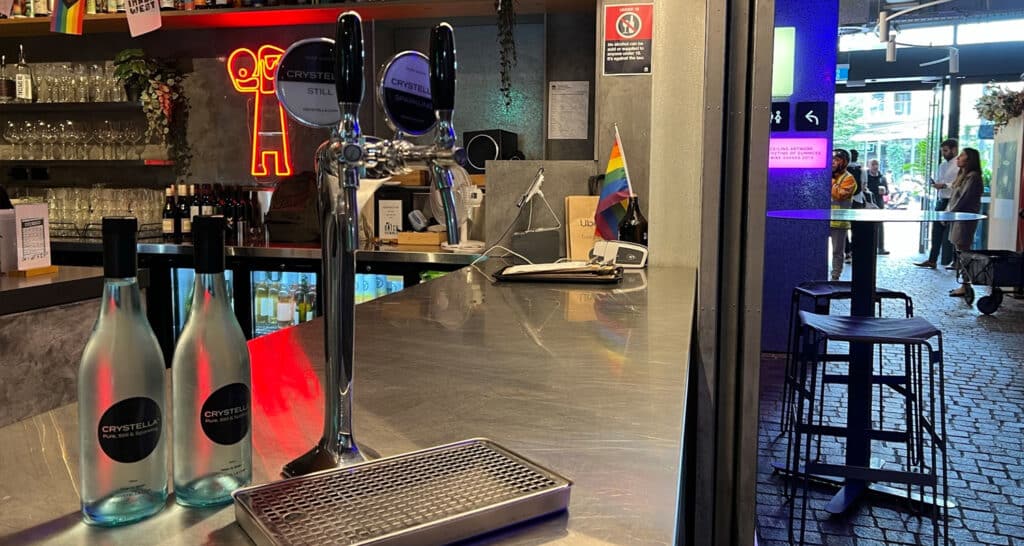
Commercial Water Systems For Hospitality
In the fast-paced hospitality industry, delivering an exceptional guest experience is paramount. One aspect often overlooked is the provision of high-quality water systems. From restaurants and cafes to hotels and event venues, having reliable, efficient, and eco-friendly water systems can significantly enhance operations, reduce costs, and impress guests.
Crystella, a leader in water dispensing technology, offers state-of-the-art commercial water systems designed to meet the unique needs of hospitality businesses in Australia. This guide will explore why investing in a commercial water system is essential for hospitality businesses and how Crystella can help you achieve your operational goals.
Water is a fundamental part of hospitality services. Here are key reasons why an efficient water system matters:
1. Enhancing Guest Experience
Guests expect high-quality water that is easily accessible, whether for drinking or as part of their dining experience. Offering chilled still, sparkling, or room-temperature water on-demand elevates your service and creates a lasting impression.
2. Boosting Operational Efficiency
Manual handling of bottled water is time-consuming and labour-intensive. A streamlined water system eliminates the need for stocking, transporting, and disposing of single-use bottles, allowing staff to focus on core responsibilities.
3. Environmental Responsibility
Sustainability is no longer optional in the hospitality sector. Reducing single-use plastic bottles and adopting energy-efficient systems demonstrates your commitment to the environment, appealing to eco-conscious guests.
4. Cost Savings
Investing in a water system can significantly lower costs by reducing expenses on bottled water purchases and waste management.
1. Multiple Dispensing Options
Modern water systems, such as Crystella’s Fiorella SC15, provide various dispensing options including:
2. High Capacity
Crystella’s systems are designed for busy environments, offering up to 15 litres of chilled or sparkling water per hour, ensuring you never run out during peak times.
3. Compact & Stylish Design
Hospitality venues often have limited space. Crystella systems feature compact designs that blend seamlessly into any environment, saving valuable real estate.
4. Easy Installation & Maintenance
Our systems include a complete installation kit with regulators, hoses, and filters, making setup straightforward. Plus, energy-efficient standby modes minimise power consumption during off-peak hours.
5. Eco-Friendly Solutions
Crystella’s commitment to sustainability is evident through its integration with the ReCylinder program, the first 2.2L CO2 cylinder recycling initiative in Australia.
1. Restaurants & Cafes
2. Hotels & Resorts
3. Event Venues
Case Study: The Coffee Club
Terry Agiasotelis, manager of The Coffee Club, implemented Crystella’s sparkling water system to replace traditional bottled water. The results? Increased efficiency, cost savings, and overwhelmingly positive guest feedback.
Case Study: Bumbles Cafe, Surfers Paradise
A popular cafe in Surfers Paradise upgraded to Crystella’s Fiorella system to meet the demands of its busy clientele. Guests appreciated the availability of chilled sparkling water, and staff found the system easy to use and maintain.
Selecting the perfect water system depends on your business size, water demand, and operational priorities. Crystella offers tailored solutions for:
Crystella stands out in the Australian market due to its:
Investing in a commercial water system is not just about meeting operational needs; it’s about redefining the guest experience and positioning your hospitality business as a leader in sustainability. With Crystella’s advanced water systems, you can achieve operational excellence while making a positive environmental impact.
Contact us today to learn more about how Crystella can transform your hospitality venue.
Our cutting-edge, always on-tap systems deliver chilled still and sparkling water for office, workplaces and the hospitality industry, eliminating the reliance on single-use plastic bottles and minimising the costs associated with bottled water and their supply chains.